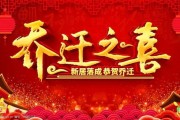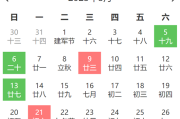本文目录导读:
- The Concept of "吉时" in Chinese Culture
- Translating "吉时" into English
- The Role of Time in Modern Society
- The Intersection of Tradition and Modernity
- Conclusion

Time, often referred to as the "fourth dimension," has always been a subject of human fascination and contemplation. From the earliest civilizations to the modern era, humans have sought to understand, measure, and manipulate time in various ways. One concept that has intrigued people across cultures is the idea of "吉时" (ji shi), which translates to "good hour" or "lucky time." This article explores the significance of "吉时" in both English and Chinese contexts, focusing on its relevance in the modern era.
The Concept of "吉时" in Chinese Culture
In Chinese culture, "吉时" holds a profound significance. It is often associated with good fortune, prosperity, and harmony. The concept of "吉时" is deeply rooted in traditional Chinese beliefs and practices. For instance, in Chinese culture, certain times of the day are considered more favorable for specific activities, such as weddings, business negotiations, or even medical appointments. These times are believed to align with the natural flow of the coos, thereby ensuring success and positive outcomes.
The importance of "吉时" is often highlighted during traditional festivals and rituals. For example, during the Chinese New Year, the timing of the festival is considered extremely important, as it is believed to bring good luck and prosperity to the coming year. Similarly, in the practice of feng shui, the alignment of time is seen as crucial for creating a harmonious living environment.
Translating "吉时" into English
The concept of "吉时" does not exist in the same form in English culture, but there are ogous concepts that convey similar ideas. In English, the equivalent of "吉时" might be referred to as "good timing" or "lucky hour." This concept is often associated with the idea of seizing opportunities or aligning one's actions with favorable circumstances.
In modern times, the importance of "good timing" has become increasingly relevant in various aspects of life. For instance, in business, timing can make or break a deal. A well-timed announcement can lead to a successful expansion, while a poorly timed one might result in failure. Similarly, in personal relationships, understanding and把握 good timing can lead to healthier and more fulfilling interactions.
The Role of Time in Modern Society
In the modern era, time has become a precious commodity. With the constant demands of work, family, and personal responsibilities, managing one's time effectively has become a critical skill. The concept of "吉时" or "good timing" is particularly relevant in this context. It encourages individuals to prioritize their activities, make the most of their time, and achieve their goals more efficiently.
Moreover, the advent of technology has revolutionized the way we measure and manage time. From digital clocks to apps that track our daily routines, we now have more tools than ever before to control and monitor time. This has led to a new understanding of "吉时," where the concept is not just about aligning with the natural flow of the day, but also about creating a schedule that suits our needs and preferences.
The Intersection of Tradition and Modernity
The concept of "吉时" reflects the deep-rooted traditions of Chinese culture. However, in the modern era, this concept has evolved to encompass a broader understanding of time. While the core idea of aligning one's actions with favorable circumstances remains the same, the interpretation and application of "吉时" have become more flexible and adaptable.
This evolution of the concept of "吉时" highlights the dynamic nature of human thought and culture. As societies progress and change, traditional concepts are often reinterpreted and adapted to fit the new realities. The idea of "吉时" serves as a bridge between the past and the present, reminding us of the importance of balance, harmony, and opportunity in our lives.
Conclusion
In conclusion, the concept of "吉时" is a fascinating topic that bridges the gap between traditional culture and modernity. While the exact equivalent of "吉时" in English may not exist, the idea of "good timing" or "lucky hour" serves as a reminder of the importance of aligning our actions with favorable circumstances. Whether in personal relationships, business deals, or daily routines, understanding and把握好"吉时" can lead to more successful and fulfilling experiences.
As we navigate the complexities of modern life, the concept of "吉时" continues to inspire and guide us. It serves as a reminder that time is not just a measurement tool, but also a powerful force that can shape our lives in positive ways. By learning to appreciate and utilize the concept of "吉时," we can create a more balanced and harmonious life, both in the present and in the future.
标签: #吉时







